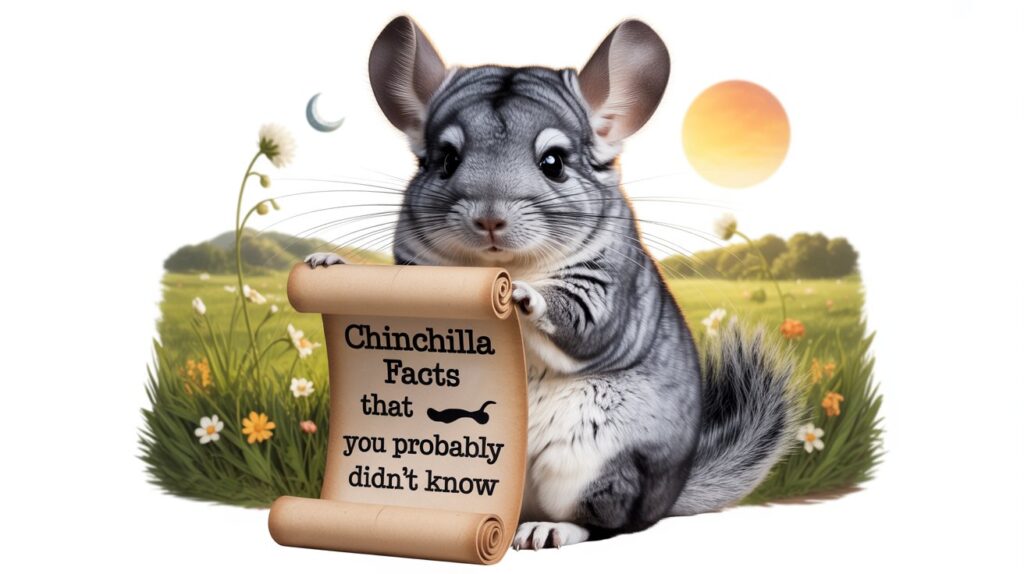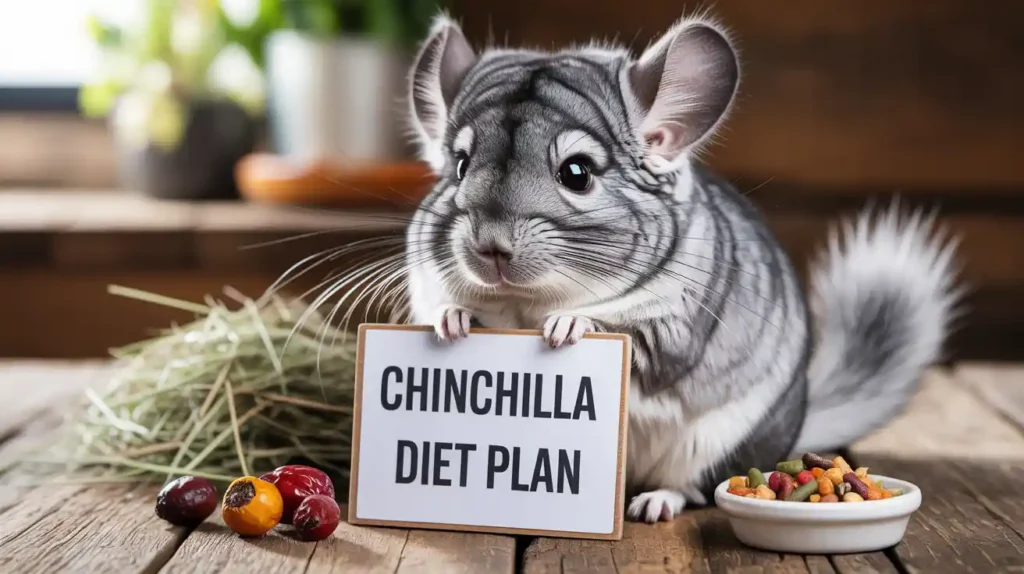Chinchillas are small, feathery pets that are loved by many people mainly because they are playful and have soft fur. As responsible pet owners we want to help them out as much as possible and diet is one of the biggest factors in keeping them healthy. Hay and pellets are what most people feed their chinchillas but a lot of people doubt if fruits can be fed to their pet animals. The one question that comes up quite a bit is: can chinchilla eat oranges?
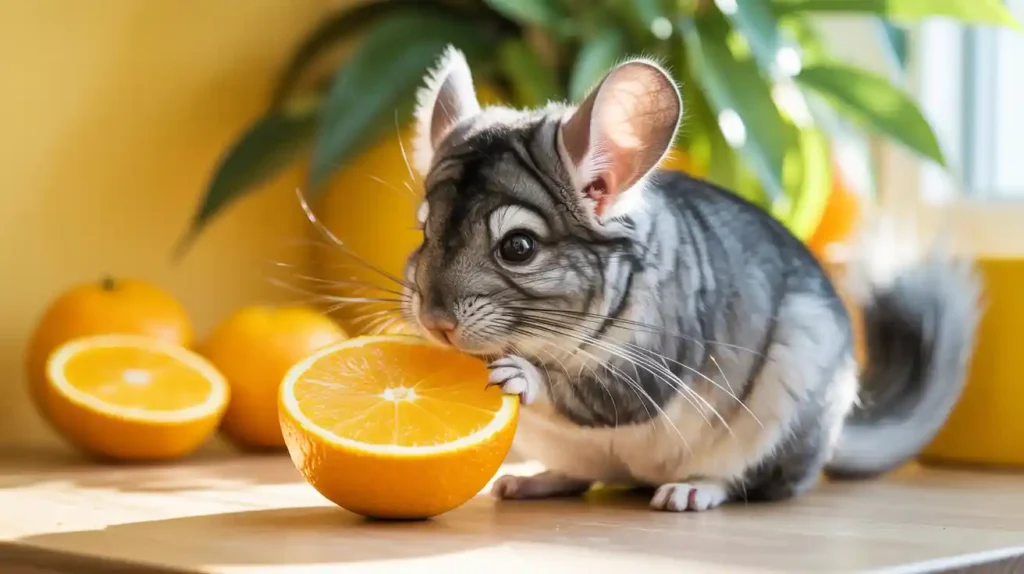
Oranges are actually sweet, juicy and high in vitamins for humans, but what about chinchillas? In this guide we will discuss whether oranges are safe, what dangers they contain, how much (if any) is safe and better options Also we will talk about the chinchilla diet overview, the potential health hazards of citrus fruits and alternative fruits for chinchillas.
Table of Contents
Overview of Chinchilla Diet
Chinchillas are herbivores which mean they only eat plants. In their natural habitat (rocky Andes mountains of South America), chinchillas eat mostly dry grasses, leaves and plants and are low in sugar and fat, but high in fiber.
For pet chinchillas, their diet should be similar:
- Main food: High-quality chinchilla pellets made specifically for their needs.
- Unlimited hay: Timothy hay, meadow hay or orchard grass hay. Hay has teeth, digesting benefit.
- Fresh water: Always available in a water bottle.
Treats (counting fruits) should be less than 5% of the diet. Too much sugar, moisture or fat will upset their sensitive digestive systems.
Are Oranges Safe for Chinchillas?
If you are asking the question are oranges safe for chinchillas then to answer that honestly no. Oranges have vitamin C and they are delicious to humans but they’re also high in sugar and acidic for chinchillas.
Problems oranges can cause include:
- Stomach upset – loose stools or diarrhea.
- Gas and bloating – chinchillas cannot easily digest citrus fruits.
- Tooth decay – sugar feeds harmful bacteria in the mouth.
- Long term health implication e. g. obesity and diabetes given too often.
Chinchillas do not need the extra vitamin C (from oranges) because their pellets and hay provide all the nutrients they need.
Also, read about: Chinchilla Diet Plan
Can Chinchillas Eat Orange Peels?
It may seem like the peel would be safer because it’s less juicy but can chinchillas eat orange peels? The answer is: no. Orange peels are:
- Still acidic.
- Tough to chew and digest.
- Often covered with pesticide or chemicals, even after washing.
It’s the citrus oils in the peelings that can upset a chinchilla’s tummy and cause pain.
Can Chinchillas Eat Orange Seeds?
Orange seeds are clearly not okay. If you’re asking “are orange seeds safe to eat for chinchillas” then no. They can:
- Be a choking hazard.
- Contain small amounts of natural toxins.
- Cause digestive blockages.
Even if you were to give an apple seed (which isn’t recommended actually), you would still want to get the seeds out.
Can Chinchillas Eat Mandarin Oranges?
Mandarins are smaller and sweeter and less ripe than regular oranges. Can Chinchillas eat mandarin oranges? Regrettably that’s not the case. Mandarins are very high in sugar and acid and as such pose the same risks for health as regular oranges.
Because mandarins are so sweet they can cause spike in blood sugar much faster than other foods and increase the risk of tooth decay, digestive issues.
Can Chinchillas Eat Dried Oranges?
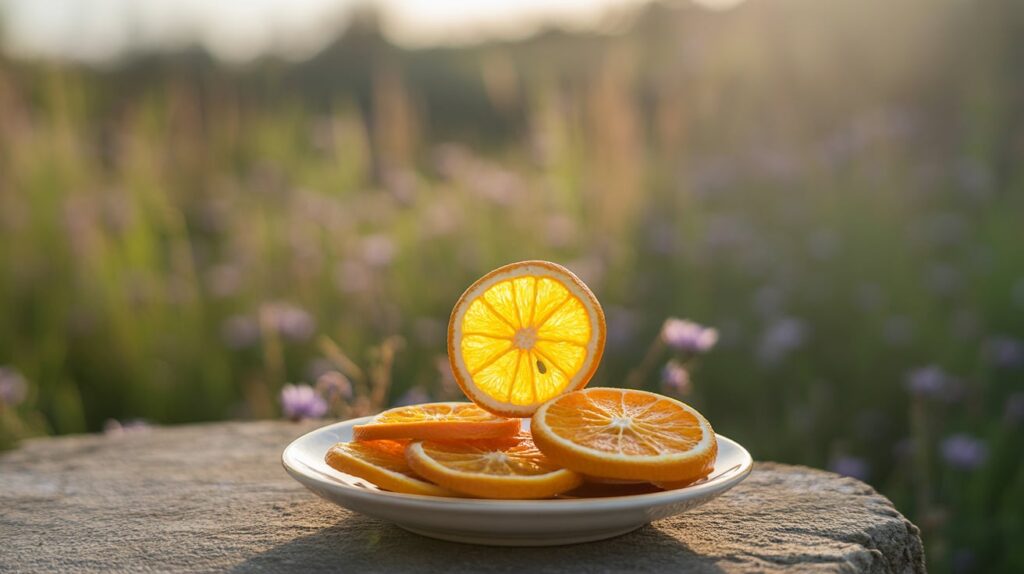
Dried fruit may seem like good snacks in theory but as you would expect the drying releases water and concentrates the sugar so yes chinchillas can eat dried oranges. Dried oranges
- Are extremely high in sugar.
- Can stick to teeth, increasing the risk of dental problems.
- They have a chewy texture. That’s hard for chinchillas to chew, swallow.
Dried fruits of any kind should be avoided for chinchillas.
How Much Orange Can Chinchillas Eat?
If you still want to give your chinchilla a very unusual treat you could ask: how much orange can they eat? The safest is less than the size of your pinky fingernail. It’s just a taste and nothing more.
Even then, it needs to be an extremely rare treat — once every few months or so at best. Keep in mind that chinchillas will gladly eat oranges if offered but they do not know what’s safe for them, you have to make that decision.
Potential Health Risks of Feeding Oranges to Chinchillas
Feeding oranges can cause several health problems for chinchillas:
- Digestive upset – Citrus fruits are too acidic which causes diarrhea.
- Tooth decay – Sugar is tacky to the teeth and attracts bacteria.
- Obesity – Extra sugar turns into fat, foremost to weight problems.
- Stomach Acidity – Citrus increases stomach acid levels, causing discomfort.
- Long Term Disease – regular consumption of sugar can lead to diabetes-like conditions in chinchillas.
Because Chinchillas live long periods of time (up to 15 years) then diet issues that result long term can be fatal.
Alternative Fruit Options for Chinchillas
If you want to give your chinchilla a fruit treat special make sure it’s safe and low – sugar and feed them sparingly
- Apple slices (no seeds) – crisp and mildly sweet.
- Blueberries – antioxidant-rich but give only 1–2 berries.
- Strawberries – small amounts are safe.
- Pear slices (no seeds) – mild and juicy.
- Raisins – only as a very rare treat.
These fruits are still high in sugar so you need to give them in small amounts. Your chinchilla needs to be watched after you introduce a new treat for any stomach upset.
Other Safe Treats Besides Fruit
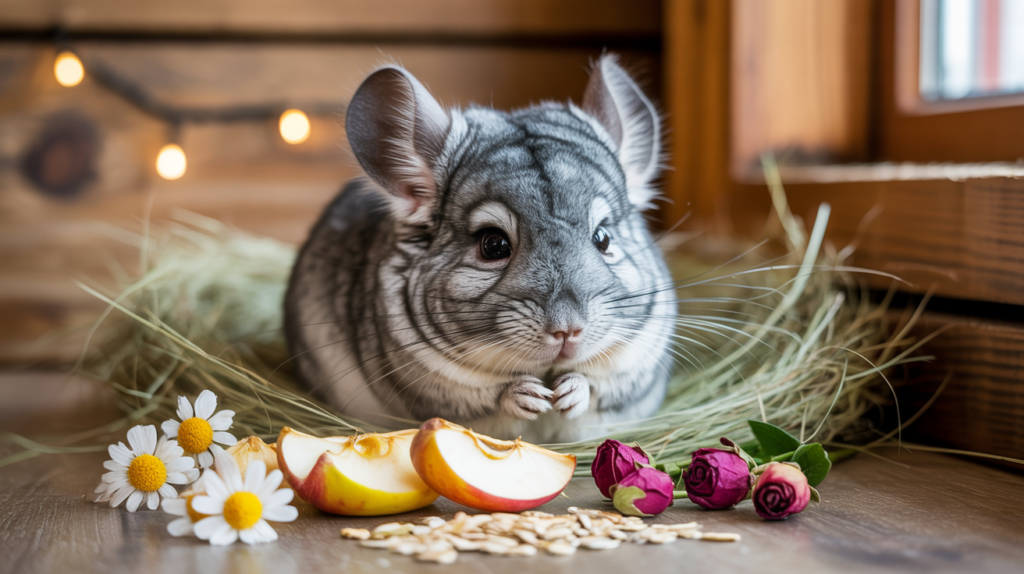
There’s not only fruit treats your chinchilla can eat. Non fruit treats are usually more healthful and less toxic.
- Rose hips – dried, high in fiber.
- Dried herbs – such as chamomile or hibiscus.
- Plain shredded wheat – no sugar or additives.
- Small amounts of plain oats – for variety.
These provide enrichment without adding too much sugar.
Tips for Introducing Any New Food to Chinchillas
If you decide to give your chinchilla a peck or two of an orange or whatever
- Start small a very tiny bite.
- Observe very closely, watch for soft stools or changes in behavior.
- Wait a few days before offering another new food.
- Never mix new foods – introduce one at a time.
This helps you identify if a certain food causes problems.
Conclusion
So what are oranges okay for chinchillas to eat? Sure just a little nick the once in a while could be fine for your pet, but it’s much safer to stay away from oranges altogether. Oranges fresh or dried or the peel are too sugary and sharp for chinchillas.
In other words, feed your chinchilla a healthy diet of hay, pellets, fresh water and safe treats in relatively small amounts so he will be healthy, happy and energetic for many years.
FAQs
1. How often can chinchillas eat oranges?
Very not often – maybe once every few months, but not as a regular snack.
2. What are safer treats than oranges?
Apples, blueberries, raisins (unusual) and dried rose hips are improved choices.
3. Can chinchilla eat oranges at all?
They can, but it’s not recommended. Even a small amount can distress their tummy.
4. What if my chinchilla accidentally eats an orange?
If it’s a small amount, observe for signs of stomach upset, such as baggy stools or loss of hunger. If symptoms persist, contact your check.
5. What fruits are safest for chinchillas?
Safe and sound options in small quantities include apples (seedless), blueberries, pears, and strawberries.

